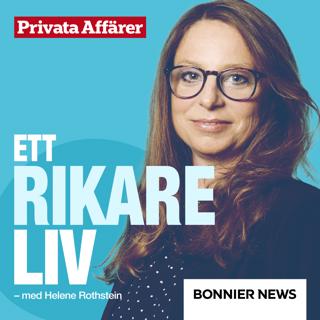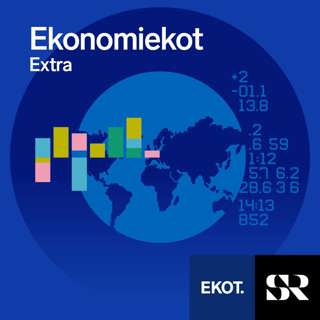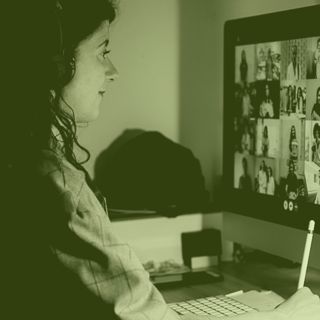
Online Learning and the Ed Tech Debate
This episode is all about education and technology, a topic that’s especially top of mind this week as students in much of the country return to school—virtually. The intersection of learning and technology has been accelerated by the pandemic, but the debate around education's "disruption," and what that means for educators doing the hands-on work of teaching, has been swirling for years.In this episode, a16z general partner Connie Chan and host Lauren Murrow are joined by educators and experts Josh Kim, the Director of Online Programs and Strategy at Dartmouth College (whose most recent book, Learning Innovation and the Future of Higher Education, was published earlier this year), and David Deming, Professor of Education and Economics at the Harvard Kennedy School and the Harvard Graduate School of Education.We explore the complicated issue of online education from a variety of angles: Can the quality of online learning stack up to an in-person education? What improvements have we seen over the past decade and what improvements are we likely to see this fall, compared to the COVID scramble last spring? And might this moment be the push we need for educators and technologists—sometimes at odds—to collaborate more closely?We discuss and debate the research behind online learning, the dual impact of tech and COVID on the future of higher ed, and tech's potential in everything from curriculum to access to structural inequality.
17 Aug 202048min

On Vaccines and Vaccinology, in COVID and Beyond
WHEN are we going to have a COVID-19 vaccine, and how the heck are we going from (what’s been traditionally been up to) 12 years or so of vaccine development compressed into 12 months or so? What will and won’t be compromised here, and where do new technologies -- like mRNA or messenger RNA vaccines -- come in? Where will vaccines likely be distributed first, who will and won't get them initially, both across populations... and nations?Rajeev Venkayya, president of the Global Vaccine Business Unit at Takeda Pharmaceutical Company and former White House Special Assistant to the President for Biodefense (where, among other things, he was the principal author of the National Strategy for Pandemic Influenza) joins this special deep-dive episode of the a16z Podcast, in conversation with general partner Jorge Conde to discuss all things vaccines. Including where does manufacturing and scale-up come in -- is "plug and play" really here? -- and by the way, why have we traditionally used eggs in growing vaccines?Where and how can startups and others participate in vaccine development, given how competitive, time-consuming, capital intensive, and risky it is to develop (and sell) them? Can we decouple the question of how we reopen schools with when we have a vaccine? And how do we maintain not just safety and efficacy of vaccines but trust and transparency when it comes to mis/information? We may actually see the emergence of a "Neo Anti-Vaxxer" thanks to the rush... but we may also be entering a renaissance for vaccinology after this pandemic. So what changes, what doesn't? image: Jernej Furman / Flickr
14 Aug 202056min

Turning Open Source Developers Into Superfans
In this episode, we continue our community series with a recent discussion that applies to many kinds of community building. Today’s topic: How do you create a platform that people not only use, but tell their friends about? One that goes beyond just being useful and actually connects deeply with the user? In this discussion, which was recorded at our Crypto Startup School in April 2020, a16z General Partner Chris Dixon talked about building communities — specifically, communities of open-source developers — with GitHub cofounder Tom Preston-Werner. They discussed how to engage early users, how to turn them into your biggest advocates, how to create superfans, and more. Today, GitHub is the leading community for open-source developers and others. They also discuss in-person communities vs. distributed communities, a topic that is very top of mind today.
10 Aug 202045min

Journal Club: Slaying the Sleeper Cells of Aging with CAR T
CAR T therapy is a groundbreaking medicine that uses engineered T cells to attack cancer. But CAR T cells (that is, chimeric antigen receptor T cells) can be programmed to recognize a huge range of target proteins and cell types. So what other types of cells should we train CAR Ts to recognize and destroy to improve human health?On this episode of the a16z Journal Club, a16z General Partner Jorge Conde, bio deal team partner Andy Tran, and Lauren Richardson discuss new research published in Nature in which the authors engineer CAR T cells to recognize and kill senescent cells. Cellular senescence is a process where cells stop dividing (sort of go to sleep), and in many cases this can be protective, like its role in tumor suppression, but if too many cells become senescent of if they are not removed, they can trigger inflammation and cause disease, like in atherosclerosis and type 2 diabetes. Critically, senescent cells build up as we age and contribute to a whole host of age-related conditions. In this episode we cover how the authors created these senescence killing (aka senolytic) CAR T cells, the diseases that could be treated with senolytic CAR Ts, the hurdles to getting them into the clinic, and how they could potentially be used to treat aging and possibly improve longevity.“Senolytic CAR T cells reverse senescence-associated pathologies” in Nature (June 2020) by Corina Amor, Judith Feucht, Josef Leibold, Yu-Jui Ho, Changyu Zhu, Direna Alonso-Curbelo, Jorge Mansilla-Soto, Jacob A. Boyer, Xiang Li, Theodoros Giavridis, Amanda Kulick, Shauna Houlihan, Ellinor Peerschke, Scott L. Friedman, Vladimir Ponomarev, Alessandra Piersigilli, Michel Sadelain & Scott W. Lowea16z bio Journal Club (part of the a16z Podcast), curates and covers recent advances from the scientific literature -- what papers we’re reading, and why they matter from our perspective at the intersection of biology & technology. You can find all these episodes at a16z.com/journalclub.
9 Aug 202018min
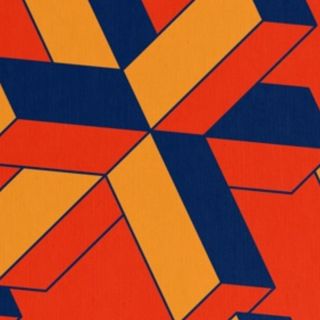
Working, Making, Creating in Public... and Private
We're living in an unprecedented era of online collaboration, coordination, and creation. All kinds of people are coming together -- whether in an open source project or company, an R&D initiative, a department in a company, a club or special interest group, even a group of friends and family -- around some shared interest or activity. But the word "members" is faceless, and doesn't help us really understand, support (and better design for) these communities.So in this special book launch episode of the a16z Podcast, Nadia Eghbal -- author of the new book Working in Public: The Making and Maintenance of Open Source Software published by Stripe Press -- shares with a16z editor in chief Sonal Chokshi the latest research and insights from years of studying the health of open source communities (for Ford Foundation), working in developer experience (at GitHub), researching the economics and production of software (at Protocol Labs), and now focusing on writer experience at Substack.Eghbal offers a new taxonomy of communities -- including newer phenomena such as "stadiums" of open source developers, other creators, and really, influencers -- who are performing their work in massive spaces where the work is public (and not necessarily participatory). So what lessons of open source communities do and don't apply to the passion economy and creator communities? How does the evolution of online communities -- really, social networks -- shift the focus to reputation and status as a service? And what if working in public is also about sharing in private, given the "dark forest theory of the internet", the growing desire for more "high-shared context" groups and spaces (including even podcasts and newsletters)? All this and more in this episode.
2 Aug 202047min

GPT-3: What's Hype, What's Real on the Latest in AI
In this episode -- cross posted from our 16 Minutes show feed -- we cover all the buzz around GPT-3, the pre-trained machine learning model from OpenAI that’s optimized to do a variety of natural-language processing tasks. It’s a commercial product, built on research; so what does this mean for both startups AND incumbents… and the future of “AI as a service”? And given that we’re seeing all kinds of (cherrypicked!) examples of output from OpenAI’s beta API being shared — how do we know how good it really is or isn’t? How do we know the difference between “looks like” a toy and “is” a toy when it comes to new innovations? And where are we, really, in terms of natural language processing and progress towards artificial general intelligence? Is it intelligent, does that matter, and how do we know (if not with a Turing Test)? Finally, what are the broader questions, considerations, and implications for jobs and more? Frank Chen explains what “it” actually is and isn’t and more in conversation with host Sonal Chokshi. The two help tease apart what’s hype/ what’s real here… as is the theme of 16 Minutes.
30 Juli 202033min
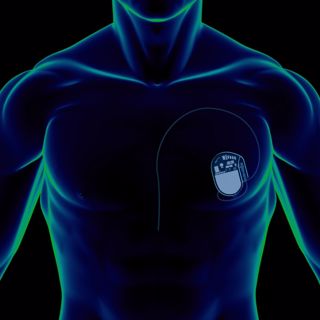
Taking the Pulse on Medical Device Security
Many don’t realize we even need to think about the possibility of security hacks when it comes to things like pacemakers, insulin pumps, and more. But when bits and bytes meet flesh and blood, security becomes literally a life or death concern. So what are the issues and risks we need to be aware of in exposing security vulnerabilities in connected biomedical devices?This conversation—with Beau Woods, Cyber Safety Innovation Fellow with the Atlantic Council, part of the I Am The Cavalry grassroots security initiative, Founder/CEO of Stratigos Security; Andy Coravos, co-founder and CEO of Elektra Labs, advisor to the Biohacking Village at DEF CON (both of whom were formerly EIRs at the FDA); and a16z's Hanne Tidnam covers how we should begin to think about addressing these security issues in the biomedical device space. What are the frameworks that should guide our conversations, and how and when (and which!) stakeholders should be incentivized to address these challenges? How did the FDA begin to think about security as part of the safety of all medical devices, including software as a medical device, and how we should think about understanding, monitoring, and updating the security of these devices—from philosophical statements to on-the-ground practical fixes and updates?
22 Juli 202023min

Journal Club: A New Path to Antibiotic Resistance
Ever since the discovery of antibiotics, microbiologists have worried about and studied how bacteria acquire resistance to these drugs. Adding to the complexity of this problem is the fact that it is not always clear whether the conditions that drive the evolution of resistance in the lab occur in patients suffering from bacterial infections.This is where the work of Nathalie Balaban -- Professor at the Hebrew University, and our guest on this episode -- comes in. The article we discuss is based on a foundation of research done in her laboratory, but this study makes the important step into the clinic by using samples from a patient with a life-threatening bacterial (MRSA) infection. By analyzing these patient samples, Dr. Balaban and her team were able to understand the conditions that lead to multi-drug resistance in a hospital setting. The work reveals how the ability of bacteria to enter a state of dormancy, also known as tolerance, can act as a stepping stone to resistance and can interfere with the efficacy of drug combinations. Our conversation covers what tolerance is, the conditions that promote tolerance, how it can lead to resistance and impact drug combination therapies, and lastly, integrating this new understanding into clinical microbiology protocols."Effect of tolerance on the evolution of antibiotic resistance under drug combinations" in Science (January 2020) by Jiafeng Liu, Orit Gefen, Irine Ronin, Maskit Bar-Meir, Nathalie Q. Balaban.a16z bio Journal Club (part of the a16z Podcast), curates and covers recent advances from the scientific literature -- what papers we’re reading, and why they matter from our perspective at the intersection of biology & technology (for bio journal club). You can find all these episodes at a16z.com/journalclub.
19 Juli 202017min



















